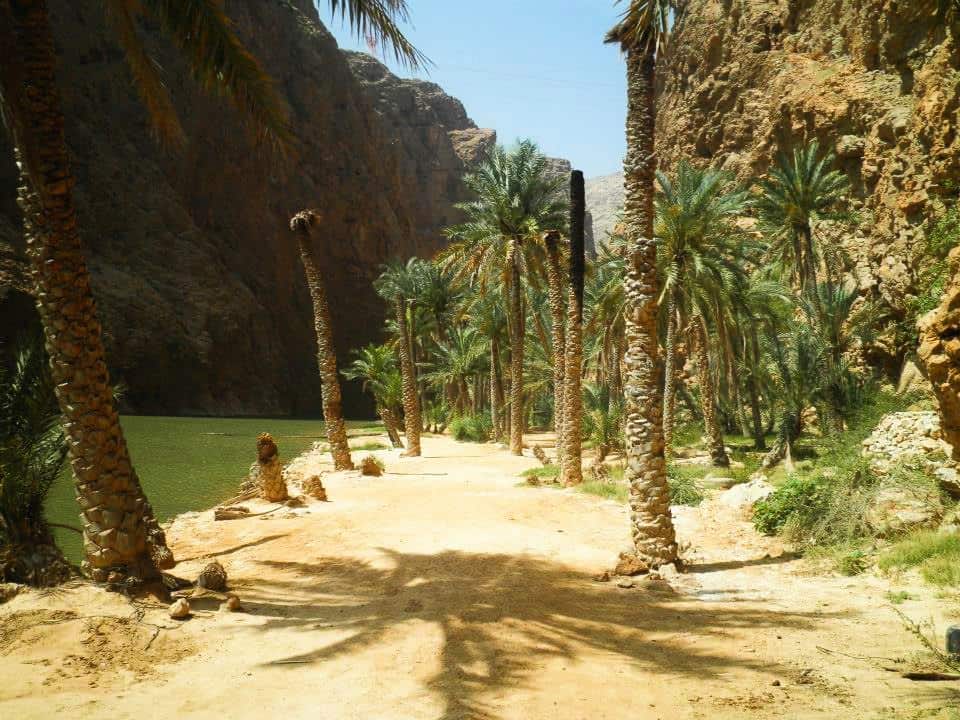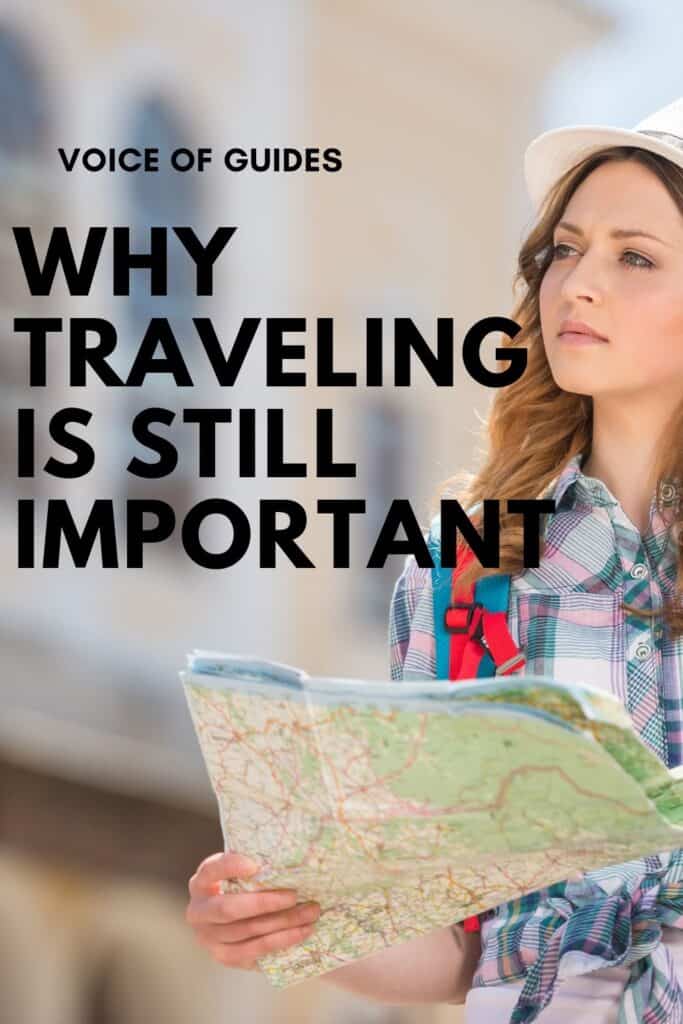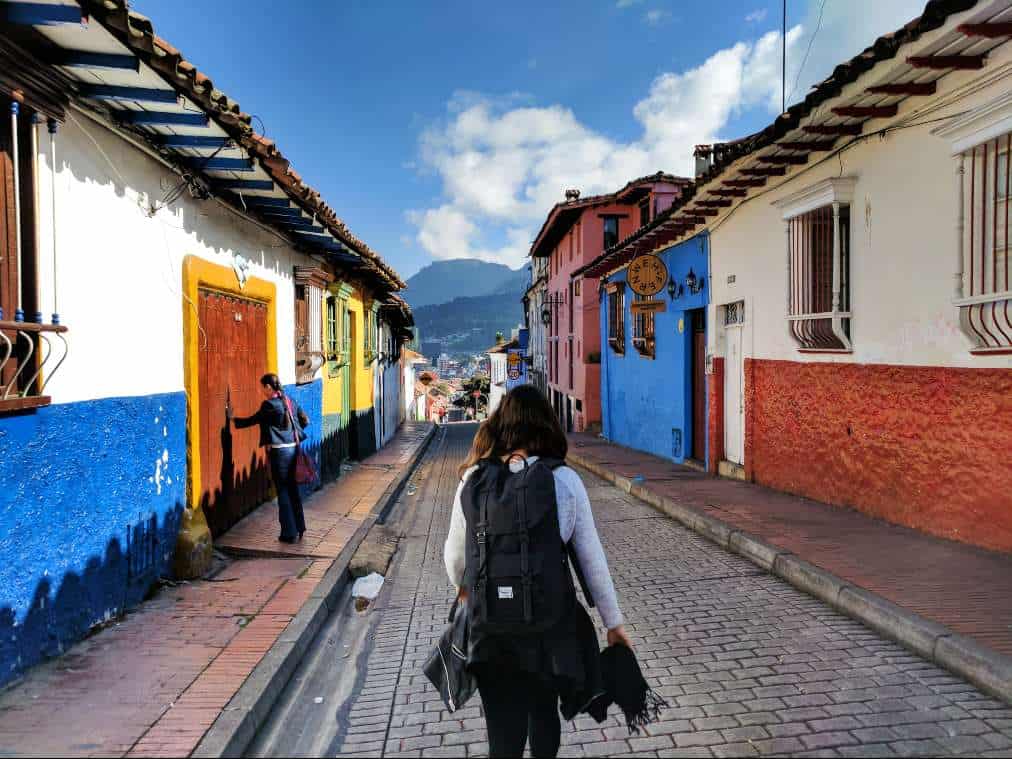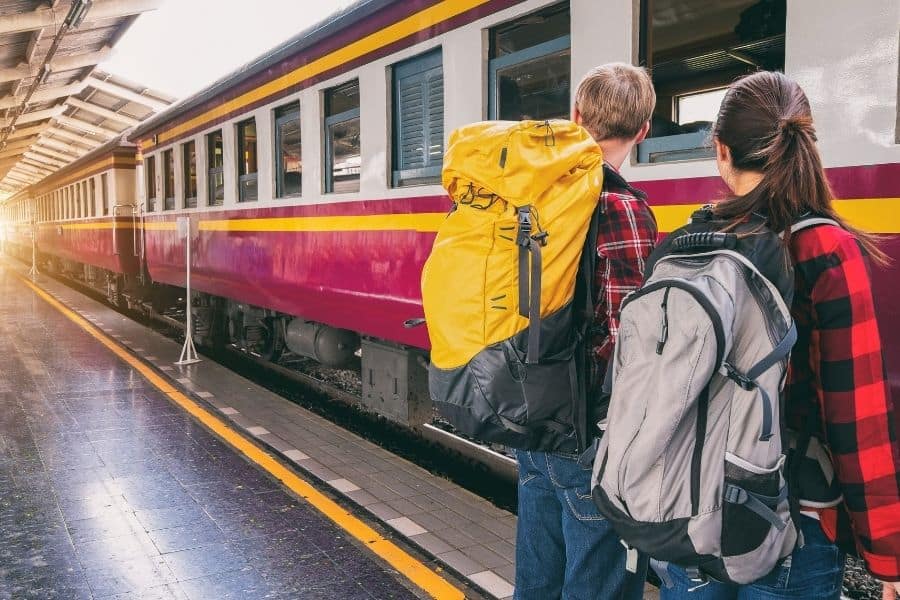Before the pandemic, it was not something that we discussed too much about why people travel or why is it important to travel at all, probably because the benefits were obvious. If somebody had the means, then he traveled. Going on a trip abroad became affordable, and for many, it was not a privilege anymore. Traveling with low-cost airlines, choosing affordable accommodation and countries make it possible for more people.
But the urgent need to save our planet put traveling in the focus of critics and raised several concerns about whether we should continue roaming around the world at all. It made us seriously think about traveling as something unnecessary that enormously increases the ecological footprint. I fully agree that we should change our habits besides many other harmful things for our environment (overconsumption, cars, industry, etc.). Probably it is the end of the quick weekend trips across Europe or unnecessary one-day business meetings that can be moved to the online platform.
Those who only travel out of status and fashion without genuine interest better stay at home. But traveling remains important and has several benefits. Trips nearby also have their advantages, but if you want them to have a lasting impact on your life, try to discover farther places that are entirely new for you and travel meaningfully.
This article will reveal 13 reasons why we need to travel and try to make it part of our lives.
1. Traveling is a source of happiness
The main reason why we travel is that it simply makes us happy. Being on the road, discovering something new and different from what we are used to, is inspiring. You may dream of seeing a place personally, living an adventure, or immerse in a cultural experience.
Read this article about how to make your travel more meaningful

Travel experiences give you lasting memories and happiness. And not just during the trip. You already feel a certain pleasure when you start to prepare for the next trip, read about it, and plan your itinerary. The closer the time of departure approaches, the more excited you become. When you return from your trip, the fresh memories still keep your mind in a feverish state, and you probably look forward to sharing them with others. Your best trips remain deep in your mind, and you can recall them even years later. Funny and exciting travel stories are common topics that you can share with your friends and family.
Read my story about traveling solo in Iran
Once a year, go someplace you’ve never been before.
2. Traveling helps you regain your energy, improves your mental and physical health, and makes you reevaluate your life
Traveling is a treatment for your eyes, mind, and body. Unless it is a pure beach holiday, it involves regular physical activity, even during cultural tours. Without noticing, you may walk several kilometers while sightseeing. Of course, it is even more true if you go on a hiking trip. Often, you return as a much fitter person. It is possible to do physical exercise at home, but hiking trips abroad can offer you a kind of scenery that does not exist in your country, immersing in a different culture at the same time.
Traveling is one of the things that can completely divert your thoughts and help you leave your problems behind. It decreases the level of stress and makes you relaxed. I don’t say that traveling is stress-free, especially if you are traveling solo and organizing everything yourself. But it makes you focus 100% on something else that comes as a refreshing mental break from daily concerns.
Traveling is one of the best remedies for life or other personal crisis. No, I do not mean, of course, that traveling will solve your problems. But sometimes, it can be a solution if you hit a roadblock in your life and do not know which direction you should take. Creating a distance from the problem can illuminate the answer.
3. Traveling shapes your personality and changes your way of thinking
I learned many new things that influenced my personality and changed how I judge things and people through traveling. It has a massive role in who I am now. I have a better understanding of different cultures and customs. Thus, I learned to respect them instead of just thinking that mine is superior or better. But for that, you should genuinely immerse in local life and culture. Plus, instead of trying to avoid it, it is even essential to see the dark side of the place. India, for example, is one of the most educative destinations on earth that everybody should see at least once in their lives. Such a culture shock affects all your senses, and you often cannot believe your eyes.
Since I have been to India, I learned more about why arranged marriages are still so popular among young people, and I have a different attitude about that by now.
Read this article about how to make your travel more meaningful
Seeing the expansive slums in the big cities and the signs of poverty at every corner make you appreciate your life back home. I know it is a cliché, but it is undoubtedly true. And I write about it because I often forget about it, and I have to remind myself of that again and again. Despite deprivation, you see smiling faces that remind you of the well-known life lesson: money is not everything.
4. Traveling is the best way to improve your problem-solving skills and become more resistant
Traveling is not all fun all the time, especially if you are traveling alone without an organized tour. Several problems can arise during your trip. Your wallet can be stolen, the bus can break down, and you must wait long hours in the scorching heat. You do not find a hotel after strolling around with a heavy backpack for hours. You do not understand the local language, which makes it harder to manage things. A taxi driver rips you off, or weather conditions cause disturbances in your trip.
Well, I have several stories about when things did not go well. I had to sleep on the floor at the airport twice at night and wait another 24 hours when they canceled my flight. I just avoided the zone hit by a strong earthquake and flood in Thailand. I was left without money when the local currency (Indian rupees) became worthless from one day to the other. All that is because the Indian prime minister banned the most common banknotes without putting the new ones into circulation right away.
I took night buses and skipped sleeping to spare time for discovering the country. I traveled for long hours every day in packed buses in Africa, often with animals on board where every place was filled. I could not even move my legs. I walked for long hours with the heavy backpack in the scorching heat because it was pretty hard to find accommodation during the biggest festival of the year, Nowruz in Iran.
Read this article about why you should visit Iran once in your life
Pin it for later!

5. You can collect lifetime experiences that you would not have otherwise
It can be a jeep safari or other adventures, a visit to a remote monastery, a monument you were always dreaming about, or meeting some local people you enjoyed talking to. These experiences can be very different. They can be inspiring, shocking, adventurous, and moving. Whichever they are, these are memories you will remember all your life.
It was a lifetime experience for me when I participated in a guided tour with the man who served as a policeman during the Balkan war. He revealed the overwhelming pain and cruelty of the war through the eyes of a local. Crossing the road became the riskiest thing. Sarajevo being under siege and blockade made the locals dig a secret tunnel to deliver food and medicine to the citizens.
Read this article about how to make your travel more meaningful
I also learned a lot from a young guy who grew up in Communa 13, in Medellín, once the most dangerous part of the country and the world. Through his explanations, I learned much more about the Colombian state of mind and how they struggle to get rid of their bad reputation eventually.

From the above, you can see that some local guided tours had a big impact on me. These tours help you get under the surface and understand the local culture, history, and the place where you are.
6. Traveling extends your knowledge about different cultures and gets to know the unbiased image of a country
The best is to start already preparing for your trip well ahead by reading books and watching documentaries. But sometimes there is no time for preparations, and you are happy that you managed to get some holiday, book your flight, pack your bag and maybe buy your guidebook. Whether you arrive with good basic knowledge or do not know much about your destination, traveling will help you learn more about different cultures and life in other countries.
To have a meaningful trip and return with more knowledge, I recommend participating in a few local tours. As I mentioned above, these tours can quickly become one of your most memorable experiences. It also gives you the chance to meet locals and ask any question you are interested in or you could not understand.
Temporarily living in a country, using public transport, eating at local restaurants will teach so much.

The media ignores some parts of the world or misrepresents countries that automatically nurture negative attitudes. Traveling to some less-known or less popular parts of the world, such as Iran, just confirmed how different real-life could be from what we imagine through the media.
Travel expands the mind and fills the gap.
7. Traveling is the best way to get out of your comfort zone
In everyday life, you know how things work. You speak the language, you can easily arrange whatever you need, where to go shopping, where to go out to eat and how to get from A to B. As soon as you arrive in a new country, all this stability is suddenly gone. Things work differently in most countries. You do not know where the bus stand is, where to buy a ticket, how to reach your destination.

If you do not speak the local language, even the inscriptions will not help you. Plus, it is evident for locals that you are new in most cases, which makes you an immediate target in less tourist-friendly countries. You do not know how to handle the pushy sellers or drivers who want to rip you off. In developing countries, daily life, in general, is less organized than you are used to.
I had a tough time figuring out when buses depart from one city to another or between countries in Albania. There is no actual bus station as you would expect or a website to find it. There is no official timetable at all. You rely on collecting information from locals that may be contradictory. Such situations can make you angry. But try to enjoy being out of your comfort zone and coping with a different mindset.
8. Traveling or living temporarily abroad helps you learn a new language or improve your language skills
You can spend years trying to master a language in your home country, but if you want to bring your language skills to a new level, then you have to travel abroad unless you have the opportunity to mingle with native speakers in your home country. When I moved abroad as a student, I thought I could speak English quite well, but when I met the first time native speakers from the USA, Canada, and the UK, I was disappointed by not understanding half of what they talked about. As time passed, my ear got used to that, and it became easier to understand native speakers day by day.
The same is true if you want to start to learn a new language from scratch. Being among native speakers who may not speak any foreign language will force you to pick up the basics and survive quickly. It also gives you the confidence to dare to talk even if you cannot speak perfectly.
9. You do not only meet new people, but you can even collect new friends during your travel
If you are traveling alone, you will need the help of locals, especially if you are in a third-world country where things are less organized. Locals are also more likely to approach you thinking you feel lonely or just curious about what made you come here. Solo female travelers attract a lot of attention in the Middle East. I made friends during my trips several times. I even made a connection during my seven-hour flight to Malaysia several years ago that still lasts. Having friends in other parts of the planet is enriching and makes your friend circles much more colorful. At the same time, you remain attached to the place, and a local friend helps you stay up to date about the current events.
Thanks to my local friends, I understood how Iranians think about the coming presidential elections, how Indians lived the worst period of the Coronavirus and how the protests affected daily life in Nepal.

10. You can implement many things you learned during your trips in your daily life
Traveling is like a school. It is a never-ending learning procedure. Every destination has something to teach you. That’s why I cannot answer what countries I’m interested in because I’m sure all have some hidden gems or customs that can add to my life.
Traveling makes only sense if you implement the beneficial things in your life. Observing how people live in other countries, how they spend their time with their children, listening to their opinion of life will make you reevaluate what you thought was “the best way of living.”
The world is a mosaic of very different cultures. Some are in complete contrast with others. We often think that our way of life is the best practice, especially arriving from a developed country. But you often realize how much you can learn from other countries, let it be the mentality, the flexibility, or cuisine.
11. Hearing or reading about something can’t compete with personal experiences
“I’m convinced that there is no need to travel because there are books and videos about every destination on earth. Plus, during the pandemic, virtual tours were booming. Thanks to that, from the comfort of your room, a local expert can guide you anywhere in the world.
Read this article about how to make your travel more meaningful
It makes me upset when people, who hardly travel, have a firm opinion about a place and know everything better than someone personally on the spot. But unfortunately, reading a book on the sofa will not replace personal experiences.
As an international tour guide, I prepare for my trips for weeks by reading books and articles on the internet. But the reality is never exactly like the book describes. And I’m not only talking about the historical facts and dates. Some books are outdated or do not cover every aspect of local life. I’m not saying that books are full of false information, but, for example, economic growth can rapidly change the mindset of a society.
All in all, nothing can replace the talk to local people.
12. Traveling helps against racism and to become an open-minded person
Unfortunately, racism is a trendy topic and an existing problem that has become more relevant since crowds of immigrants started to head for Europe in 2015. People are generally full of prejudices and fears. Mainly due to the lack of knowledge. When you have been to some of the off-the-beaten countries, you realize that nothing is as dreadful as it seems to be from far.
When you meet somebody back home, you can often notice if somebody has traveled extensively and has an open mind towards different cultures.
13. The travel experience can be decisive for young people for their future
The best is when you can already have some traveling experience at a younger age. The student exchange programs are incredibly beneficial opportunities. I spent one semester in Denmark during my university years. I cannot even describe what impact it had on my life. Being for the first time alone without my parents for a longer time on my own without knowing anybody and meeting so many people of different nationalities changed my way of thinking. As I mentioned before, this was the first time that I had to speak English daily. I had to present in the class and take my exams in English.
It is an obvious advantage if you come from a country where English is not the official language. But interacting with people from different cultural backgrounds is very beneficial for young people. They become open-minded, establish relations that can be useful in the future.
Nowadays, long-term traveling is also not taken as a gap in the CV. Several companies even favor applicants who have gained international experience and a better understanding of other cultures that can be an asset at several NGOs or multinational companies.
Conclusion
Nowadays, traveling is heavily debated due to its harmful effect on the environment. It raises the question of why we need to travel at all. Most importantly, it widens your perspective and helps you become open-minded. Meeting different people and learning about various cultures is enriching. But simply traveling to stay on the beach or without showing any interest will not have all the benefits. If you depart with respect and curiosity, it can have a lasting impact on your mentality and life, and you can collect lifetime experiences.
“If we travel simply to indulge ourselves, we are missing some of the greatest lessons life has to offer.”
After some time, most people realize that experiences have much more value in our lives than any expensive items. Traveling is not the only way to collect lasting experiences, but it is certainly one of the most rewarding.

